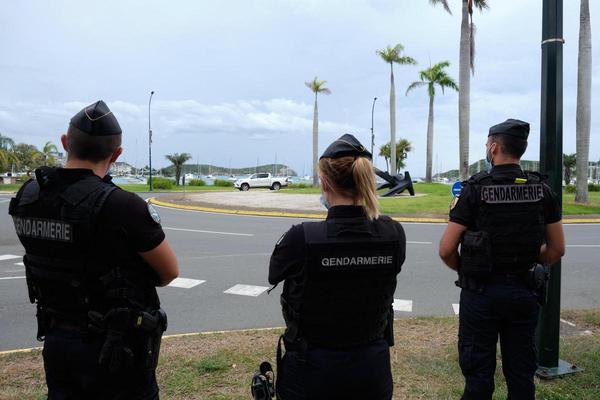Victory of No in the referendum in New Caledonia Abstention does not affect the regularity of the ballot, according to the control commission
(Nouméa) The abstention that marked the third self-determination referendum in New Caledonia "does not affect the regularity or the sincerity of the ballot", declared Monday the president of the control commission Francis Lamy, who did not found "no significant irregularity".
Updated 12 Dec. 2021Agence France-PresseThe control commission found "no significant irregularity", said Mr. Lamy during a press conference in Nouméa.
“The situation was characterized by calm”, he assured, noting some disturbances such as attempts to block the roads of the Isle of Pines, but “it absolutely did not have the scale of the demonstrations on the public road that we had experienced last year".
As for the strong abstention, it “does not affect the regularity or the sincerity of the ballot of December 12, 2021”, he underlined.
"The commission found that the applicable rules neither provide for compulsory voting nor provide for a minimum participation threshold", explained Mr. Lamy while referring to case law of the Council of State according to which a high level of abstention has no effect in itself on the regularity and the sincerity of a vote in the absence of attacks on the free exercise of the right to vote of the voter.

Mr. Lamy had launched before the vote an appeal that there be "no external demonstrations which could amount to pressure on the voter, either for example to dissuade him from going to vote, or to vote in a certain way", evoking flags at the entrance to a polling station, or groups of people near polling stations.
The Commission relies on 252 delegates, former prefects or councilors of State, magistrates or civil servants of the prefectures, who on the day of the election represented it in all the polling places.
Marked by record abstention after the separatists' call to shun the ballot, this third and final referendum provided for by the Nouméa agreements in 1998 was won by the pro-France with 96.49% of the vote, against 3.51% yes to independence, blank and invalid votes accounting for 2.99%.
The extent of the result is to be put into perspective by a participation (43.90%) in free fall compared to the two previous referendums won in November 2018 and October 2020 by the loyalists with respectively 56.7% then 53.3% of the votes.
On the legal level, the Nouméa agreement signed under the aegis of then Prime Minister Lionel Jospin, and which organizes the decolonization of New Caledonia in stages, is over.
"A transition period of 18 months" must open to develop a new status in the Republic.
The FLNKS (National Kanak Socialist Liberation Front) and the nationalists, who shunned the election on Sunday which they hoped to see postponed to 2022, have already announced that they will not recognize its result, which "cannot constitute a basis of discussing ". They also do not wish to discuss "before the presidential election" of April 2022.



![PAU - [ Altern@tives-P@loises ] PAU - [ Altern@tives-P@loises ]](http://website-google-hk.oss-cn-hongkong.aliyuncs.com/drawing/179/2022-3-2/21584.jpeg)

![Good deal: 15% bonus credit on App Store cards of €25 and more [completed] 🆕 | iGeneration Good deal: 15% bonus credit on App Store cards of €25 and more [completed] 🆕 | iGeneration](http://website-google-hk.oss-cn-hongkong.aliyuncs.com/drawing/179/2022-3-2/21870.jpeg)





Related Articles